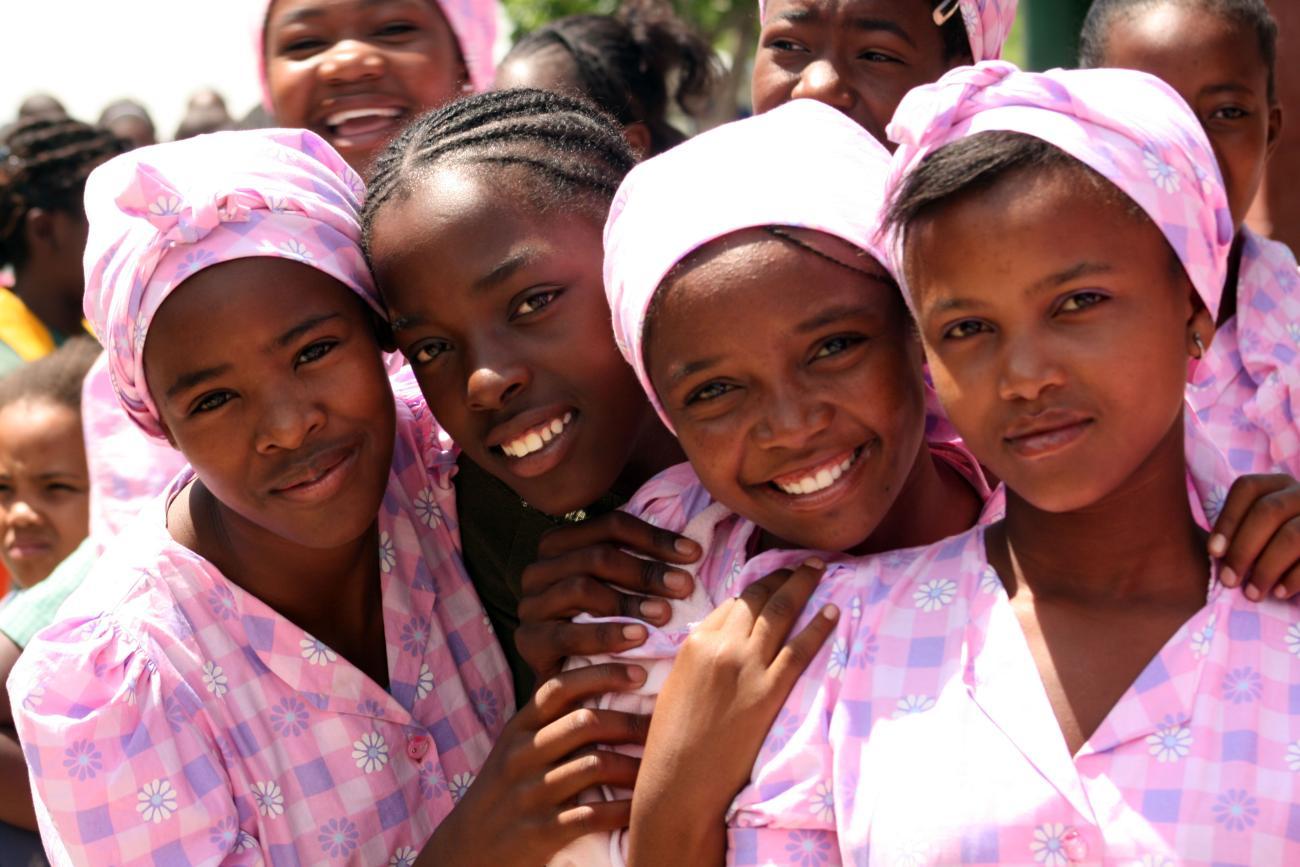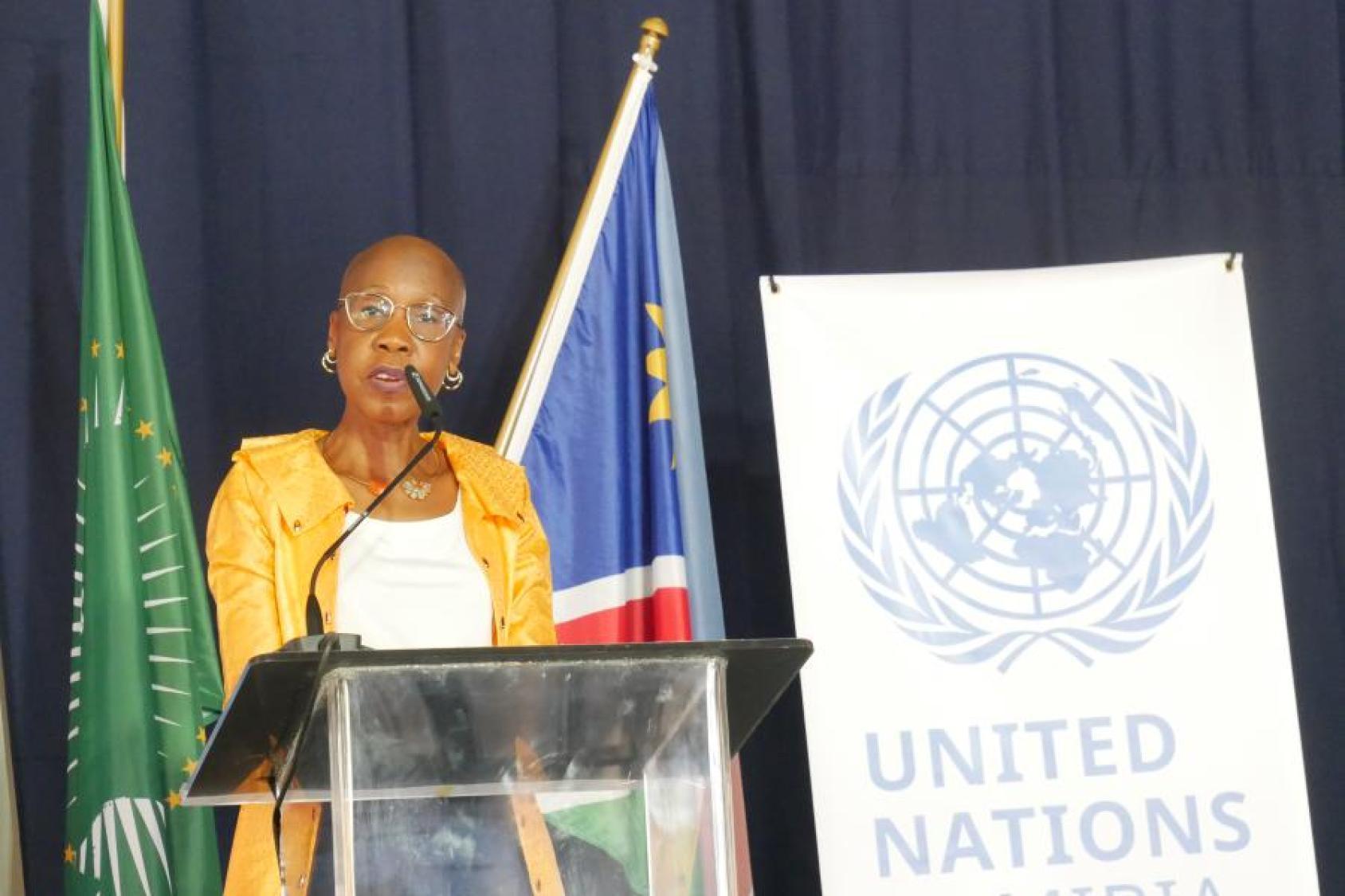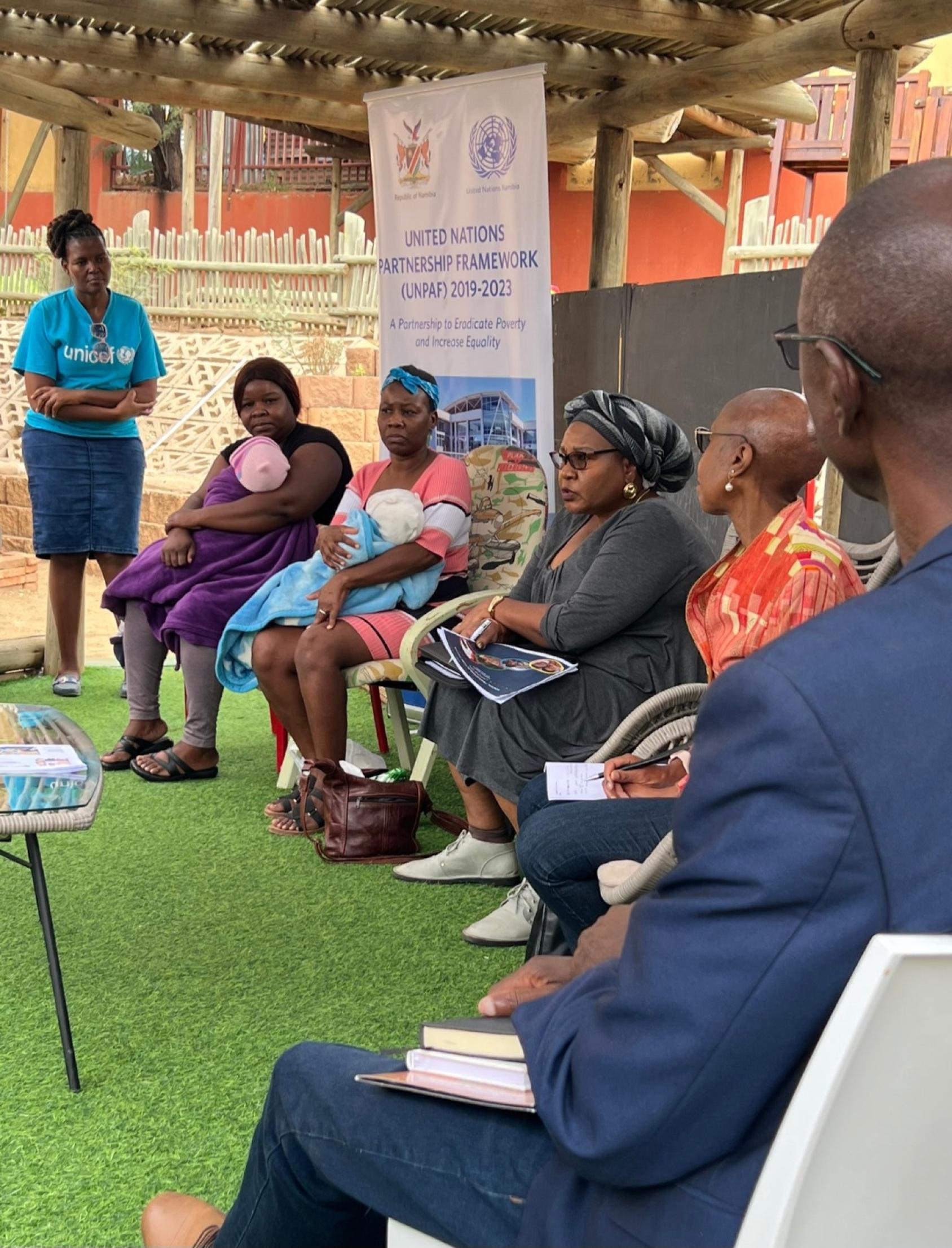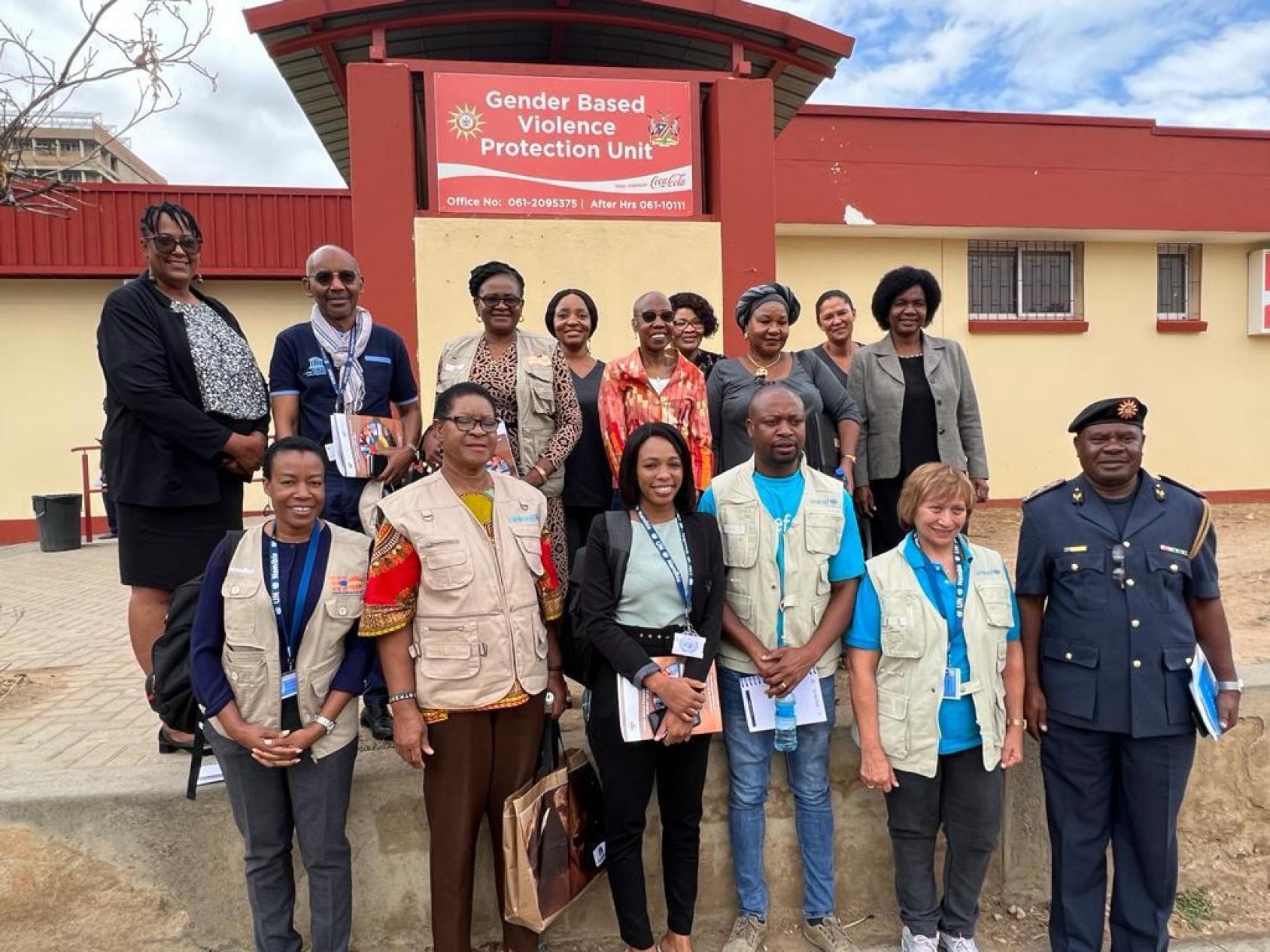Rising from the Margins: Transforming Informal Settlements in Namibia

Namibia is a country of contrasts. Despite being classified as an Upper Middle-Income country and endowed with abundant resources and low population density, Namibia grapples with profound inequality, ranking as one of the most unequal countries globally.
As the UN Resident Coordinator in the country, I have seen how this stark contrast is most evident in the informal settlements. Popularly known as the ‘silver houses’, for their distinct appearance made from corrugated iron sheets, nearly 40 per cent of Namibia's population lives in informal settlements, with little or no access to infrastructure and basic services, including water, sanitation, and hygiene.
Informal settlers are predominantly internal migrants from rural areas or other towns, as well as young people looking for jobs, better incomes, education, and other essential services. During a visit to one of the informal settlements in Windhoek the stark disparities between the suburbs and the ‘silver houses’ were glaring.

Breaking silos and ensuring basic services
Several initiatives by the Government, local authorities, civil society organizations, UN entities and development partners aim to service, upgrade and allocate land in informal settlements. However, despite clear commitment, results remain insufficient, and impact does not match the needs. Local authorities struggle with rapid urbanization, limiting their capacity to provide basic services, leading to the mushrooming of these settlements. The lack of access to infrastructure contributes to gender-based violence, suboptimal nutrition and educational, and persistent health challenges.
This expansion of informal settlements will continue, particularly if we do not address Sustainable Development Goal (SDG) 1 on reducing poverty. Our experience shows that tackling systemic issues requires collaborative action due to the interdependence of the SDGs.

The UN’s challenge is to find innovative solutions that turn these settlements into hubs for social inclusion and economic growth while addressing underlying drivers.
Ongoing collaborative research by our UN team, the Namibian Government, the Bank of Namibia, and civil society organizations, to better understand the drivers of marginalization within the urban landscape, will shed light on this poorly understood sector. This initiative will provide reliable data and evidence, to ultimately craft targeted responses.
The Value of Area-Based Programming
Under my leadership, the UN team will adopt a coordinated and integrated approach to supporting communities in informal settlements.
The Resident Coordinator’s Office (RCO) guided by the UN Partnership Framework (2019-2023), is uniquely positioned to coordinate an “area-based programming” approach, which focuses on specific geographical areas to address their unique challenges. It can help ensure that the work done by agencies such as UN Children’s Fund (UNICEF), UN Development Programme (UNDP), UN Population Fund (UNFPA) and World Health Organization (WHO) can be leveraged in complimentary ways for greater impact. The RCO is well placed to bring in diverse partners in an identified settlement. By addressing multiple community challenges and effectively strategizing and prioritizing interventions, the RCO ensures that even with limited resources, the most critical issues are addressed first and every resource is utilized to its maximum potential.
Leaving No One Behind
For example, in Windhoek’s Samora Machel area, where the settlements are home to more than 50,000 people, UN projects led by UNICEF, have helped ensure early childhood development centers have access to water, sanitation, and hygiene (WASH). This includes starting a social enterprise for recycling, building toilets and selling solar lights, which has generated income, improved the environmental footprint of the area and reduced open defecation. Furthermore, these actions taken in early childhood centers were also used in homes. Implementing partners were able to mobilize additional resources from the private sector, which complemented the UN’s catalytical funds to scale up these actions.
In another instance, the UN helped improve information systems and early detection of disabilities under the Joint Programme on the UN Partnership to Promote the Rights of Persons with Disabilities (UNPRPD). The UN team set up a National Disability Forum, now run by the government, where people from all areas, including unplanned neighborhoods, can help make decisions about disability inclusion.
Combine these existing interventions with others in health, nutrition, immunization, jobs and more, and we start to see is more systemic and joint support to vulnerable communities, that can eventually be scaled by authorities.

Scaling up for the future
As we shape the next UN Cooperation Framework (2025-2029), Namibia’s jointly agreed “roadmap” to advance the SDGs, in alignment with the National Development Plan 6, addressing inequalities and access to basic services within informal settlements continues to be a crucial issue.
As an Upper Middle-Income country, Namibia will face limits when it comes to external funding, hence finding innovative ways to coordinate and integrate budgets and programmes can help address these multidimensional challenges and have the greatest impact.
As the Resident Coordinator, my Office and I stand as critical lynchpins facilitating the kind of collaboration needed to meet Namibia’s vision for the SDGs. It starts with ensuring that people, just a step away from our back doors, are not left behind.
This blog was written by the UN Resident Coordinator in Namibia Hopolang Phororo. For more information about the UN's work in Namibia, visit namibia.un.org.













